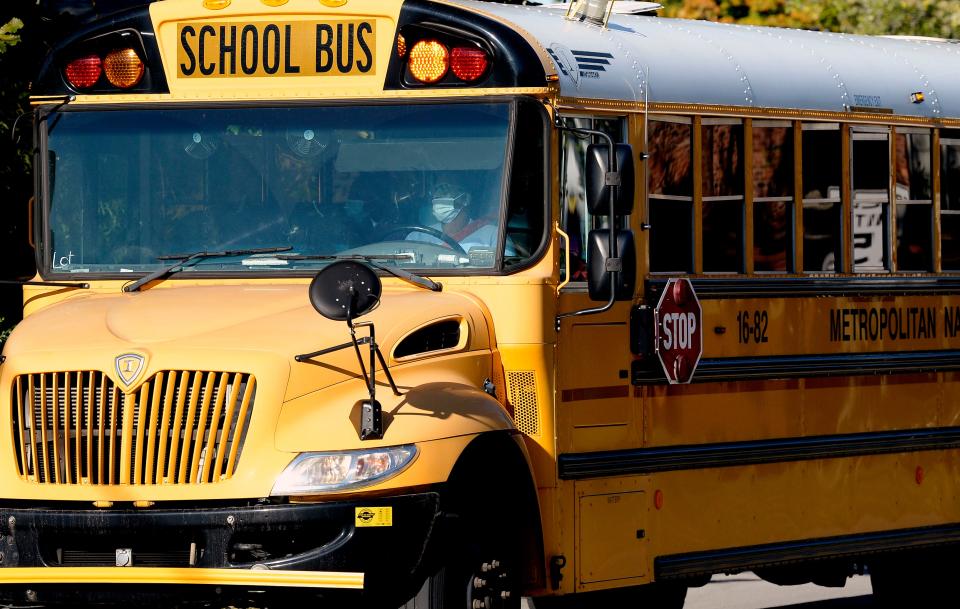Propane school buses make more sense than electric for Tennessee school districts| Opinion
Replacing dirty diesel school buses with cleaner alternatives, to which Dickson County Schools is striving, has entered the mainstream due to passage last year of the bipartisan infrastructure law, and the resultant EPA Clean School Bus Program. The premise is admirable.
Kids should be at school and not at home battling respiratory problems caused by dirty air. The Clean School Bus Program provides $5 billion from 2022-26 to replace existing school buses with zero and low-emission models. Thus, giving school districts and school bus contractors a choice to better serve their students, parents, teachers and administrators.
One choice is electric school buses, purported to be zero-emission vehicles. The only other realistic choice is propane buses, which make more sense for a lot of reasons, arguably the most important of which is pure cost.
Ultra-low-emission propane buses are already commonplace on American city, suburban and rural roads. There are 22,000 of these buses transporting 1.3 million kids to school across 49 states, with more than 100 propane buses already operating here in Tennessee.
Hear more Tennessee Voices: Get the weekly opinion newsletter for insightful and thought provoking columns.
Cost is a great consideration
Three propane buses can be purchased for every one electric bus— taking more diesel buses off the roads faster. There is no need for expensive recharging infrastructure, because an onsite refueling station can be installed for low or even no cost with signage of a long-term fuel contract.
It only takes minutes to refuel versus hours upon hours for recharging. You may be wondering, isn't electricity better than fossil fuels, especially in a crucial application like student transportation? Frankly, no.

It’s important to understand that electricity doesn’t automatically mean de-carbonization. Electricity must be generated by a primary energy source. In Tennessee, a significant portion of the state’s electricity generation comes from natural gas and coal-fired power plants.
Once generated, electricity must be transmitted through power lines — where electrons encounter resistance and lose energy. This means that getting one unit of electricity to wherever the plug is located can take up to three units of source energy.
Hear from Tennessee's Black Voices: Get the weekly newsletter for powerful and critical thinking columns.
Think about the environmental factors
Electric buses do not eliminate emissions. They simply move those emissions upstream to power plants, which are typically in or near vulnerable communities. While propane buses take the pressure off our fragile electric grid, and there are no concerns about eventual battery disposal.
Don’t forget the environmental factors. Just like electric buses, propane buses eliminate the harmful black smoke that comes out of a diesel tailpipe which you probably remember from your youth.
According to a West Virginia University study released in 2019, propane school buses dramatically reduce nitrogen oxides (NOx) by more than 90% when compared to diesel buses. The study was completed by WVU’s Center of Alternative Fuels, Engines and Emissions (CAFEE)— the same group that exposed the Volkswagen emissions violations in 2015.

Your state. Your stories. Support more reporting like this.
A subscription gives you unlimited access to stories across Tennessee that make a difference in your life and the lives of those around you. Click here to become a subscriber.
The school bus study’s results demonstrated that distance-specific NOx emissions measured from a diesel bus were significantly higher than those measured from a propane bus. It proved that propane school buses reduce harmful NOx emissions by 93%-98% under real-world driving conditions.

Propane buses also have a range of 400 miles on a single fueling, which is hundreds of miles more than electric buses.
As I said, the Clean School Bus Program affords Tennessee school districts and contractors a choice. Today, domestically produced, readily available, clean propane is the healthiest and most cost-effective option for Dickson County Schools and Tennessee schools, students and communities.
Tucker Perkins is the president and CEO of the Propane Education & Research Council based in Washington, D.C.
This article originally appeared on Nashville Tennessean: New EPA Program affords Dickson County schools a safer choice

 money
money 